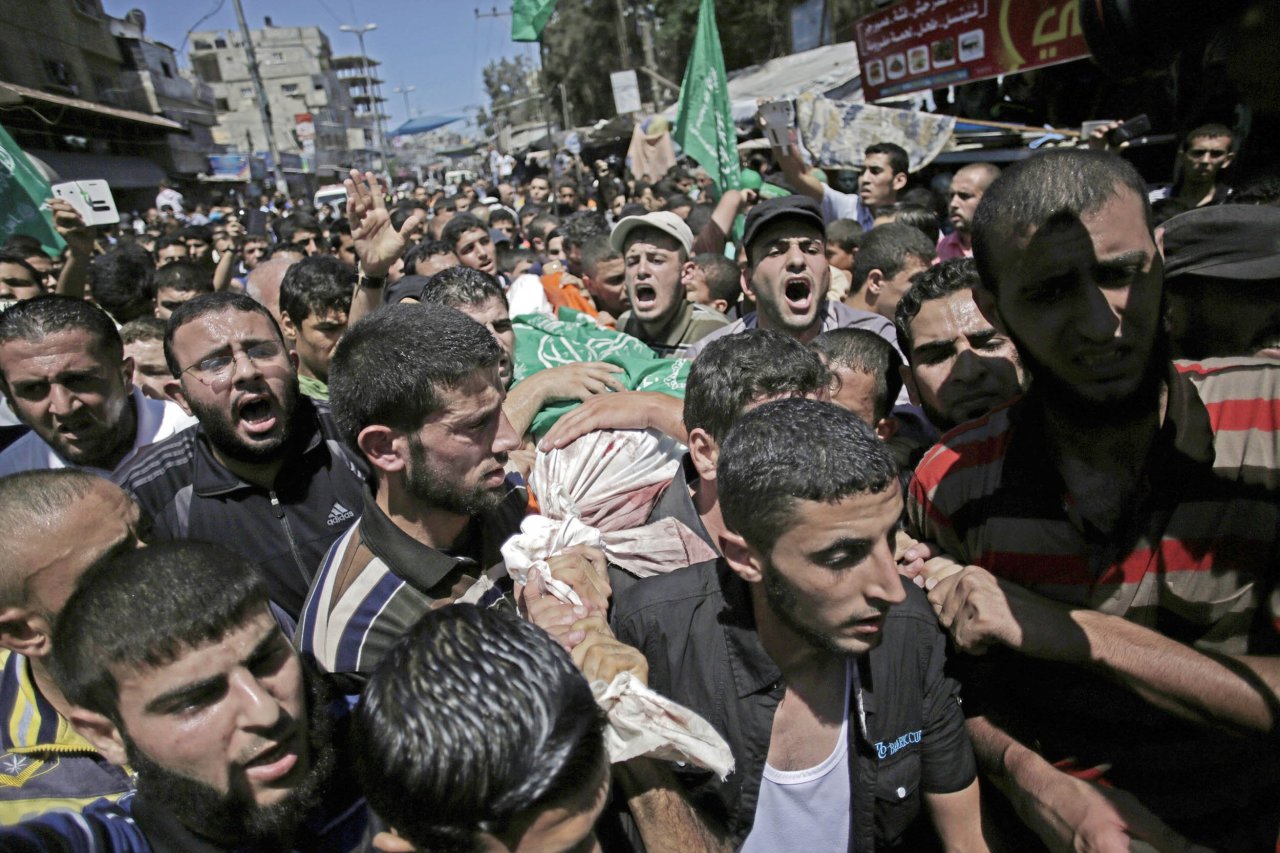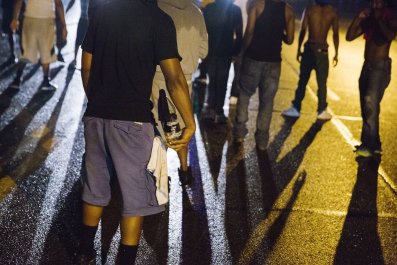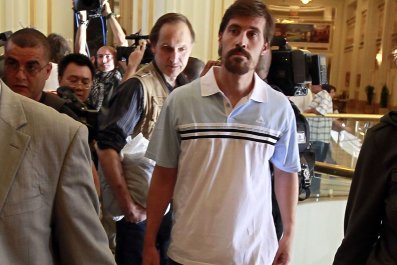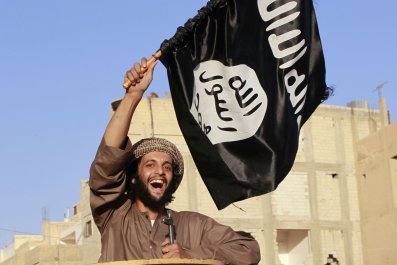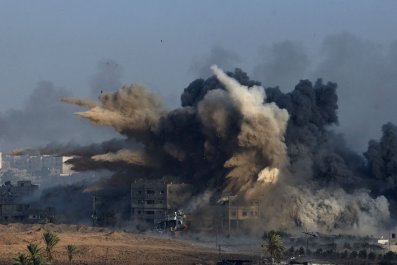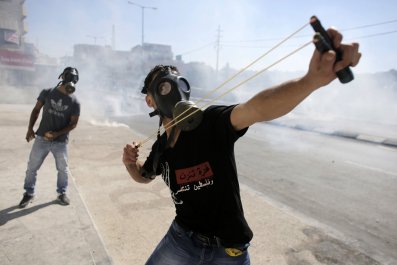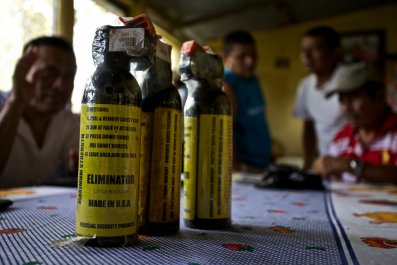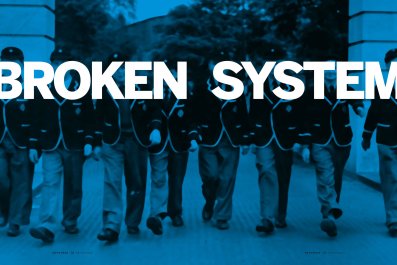Since the deaths of Abraham Lincoln and John F. Kennedy, the very term assassination has meant one thing: regime change by homicide. But over the last dozen years, the targeted killing of terrorists -- or assassinations -- has become a legitimate tool in the western arsenal.
Israel was the first country to incorporate targeted assassination into its law books, followed by America, which since the September 11, 2001, attacks has perfected the use of sophisticated drones to target terrorist leaders in Pakistan and Afghanistan.
But many international and human right organizations still frown on the practice. "As a matter of principle, the United Nations is against extrajudicial executions," Stéphane Dujarric, the U.N. spokesman, told me.
And indeed, when an Israeli airstrike Thursday killed some of the most senior military leaders of Hamas in Gaza, it was hard to avoid recalling that famous scene from The Godfather in which Michael Corleone drily summed up a mob massacre: "Barzini is dead. So is Phillip Tattaglia. Moe Greene. Stracci. Cuneo. Today I settled all family business."
But while even in real-life warfare there is an element of score settling, that is not the primary aim of assassination raids like the one that did so much damage to Hamas in Gaza. In the Israeli vernacular, in fact, the concept is known as "sikul memukad," or "targeted prevention," rather than the more popular English-language term "targeted killing."
"This is not about revenge," says Yossi Melman, a leading Israeli expert on counterterrorism and espionage. "Yes, revenge may play a role, but the main goal is to disrupt future attacks."
On August 19, the Israeli Air Force dropped several heavy loads on a Gaza City house where Mohammed Deif, the commander-in-chief of the Izz ad-Din al-Qassam Brigades, the Hamas army, was believed to have been at the time. Hamas officials announced that Deif's wife and two of his children were killed in the attack, along with another, unidentified man. But at the time of this writing, whether the air raid killed Deif remains unclear.
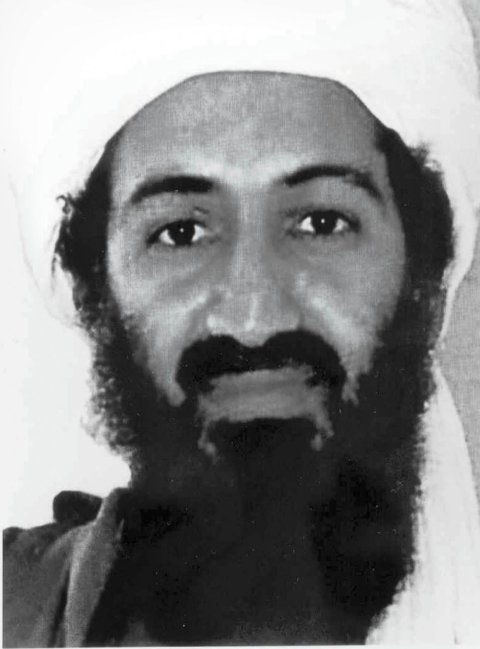
"No one is immune," Prime Minister Benjamin Netanyahu said cryptically as speculations mounted. "Terrorist commanders are a legitimate target."
Two days later, the Israeli Air Force destroyed another house, in Rafah. Three top al-Qassam Brigades commanders were killed in the attack.
Mohammed Abu Shamalah was the southern command chief, Raed Attar led Hamas's efforts to build the complex set of smuggling and attack tunnels, and Mohammed Barhoum was one of the Brigades's founders. His expertise included smuggling arms and illicit cash into the Strip.
The death of three such important commanders was a considerable blow, and Hamas seemed on the verge of panic, publicly executing 18 suspected collaborators in the streets of Gaza City. Some Israeli officials expressed the hope that the attacks would force Hamas to finally agree to cease-fire terms that would end the war.
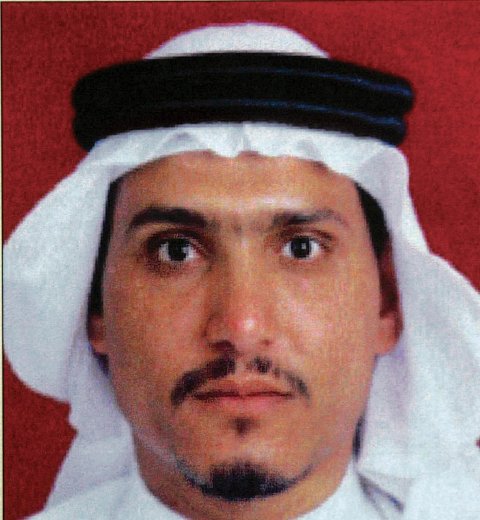
But is such killing legitimate? The Israelis' legal, ethical and operational approach to killing terrorist leaders was at first roundly criticized around the world. But after September 11 it was adopted by the U.S. and others as one of the most prized tools in the global war against terror.
It will certainly be employed as a key weapon in the nascent war that Washington has declared on the Islamic State (IS) militants in the aftermath of the grotesque videotaped execution of American journalist James Foley by an unidentified IS adherent on August 19.
The London-accented man believed to be the killer is now the subject of an extensive worldwide manhunt by several intelligence communities. When he is found, U.S. officials made clear, Miranda rights will not necessarily be read to him. Further down the road, America may well try to locate and kill more IS fighters. "People will be held accountable, one way or another," vowed Attorney General Eric Holder.
Once considered a dove for his opposition to the Iraq War, President Barack Obama has emerged as a cool-headed killer, turning the drone-operated assassination of Al-Qaeda leaders into one of his top anti-terror tools. And the clinical assassination of Osama bin Laden by American special operations troops in May 2011 is widely considered the highlight of his career as commander in chief.
It was not always like this. President Gerald Ford signed into law a ban on assassinations in foreign lands, and in the past Israeli assassinations were widely reviled around the globe, including by the United States.
"Until 20 years ago, the world considered terrorism a subject to law enforcement," says Daniel Reisner, a former army colonel who headed the Israeli Defense Forces's (IDF) international law department between 1995 and 2004. "We were alone 14 years ago when we invented the concept" of codifying and legalizing the killing of terror leaders, he says. "Now we're no longer alone."
Israeli Mossad special agents and IDF elite units had assassinated top enemies long before, of course. Most famously, Prime Minister Golda Meir launched Operation Wrath of God, an assassination campaign designed to eliminate all members of the Palestinian Black September unit that perpetrated the massacre of Israeli athletes at the 1972 Munich Olympics.
But as Reisner notes, these were all clandestine operations that were never officially acknowledged. Everything changed in 2000, during the second intifada, a terror campaign marked by bombs planted on buses in Israeli cities and suicide bombs placed in restaurants. Salah Shehade, the Gaza-based chief of the al-Qassam Brigades at the time, was largely seen as the mastermind of that campaign.
On July 2002, the Israeli air force dropped a one-ton bomb on a Gaza City house where Shehade was hiding. He was killed and so were 14 others, including his wife, daughter and some of his neighbors.
The case became the subject of an enormous debate in Israel and was studied by several state-appointed commissions that included ethicists, retired military operatives and legal experts. Many of the guidelines that the army has employed since then come from these deliberations. In 2006, the Israeli Supreme Court issued a ruling that incorporated these findings into law.
"That Supreme Court decision was a landmark case," says Reisner. After September 11, he said, America also stopped looking at the war of terror as a law enforcement issue and instead incorporated such tactics as targeted killings into its arsenal.
"Of course, the United States faces other legal issues, such as the legality of killing American citizens that have joined terror organizations, which we don't have," Reisner said. But by and large, he said, the practice is increasingly—though at times grudgingly—perceived as legitimate, even by international organizations such as the Red Cross.
But does it work? "Assassinations are pyrotechnics," says Melman, co-author of the book Spies Against Armageddon. "There are no illusions on the Israeli side that it's a cure-all. At best, it disrupts the enemy temporarily. But that's the nature of the war on terror: Every victory is temporary."
In some cases, assassinations can backfire. In 2009, Israeli Mossad agents in Amman, Jordan, injected a midlevel Hamas leader, Khaled Mashaal, with a toxic, slow-acting substance that would kill him. But the agents were caught, and King Hussein forced Jerusalem to send an antidote to the poison as a condition for releasing them. Mashaal's survival became a legend and propelled his rise to the top of the organization he now leads.
But assassinations can also be spectacularly successful. The 2008 killing of the much sought-after Hezbollah terror mastermind Imad Moughniyeh set back the organization's capabilities for a long time.
And Reisner notes that as Western armies become increasingly sensitive to the number of casualties they suffer, targeting top terror leaders from the air is an alternative to deploying thousands of troops on the ground to hunt them down.
Assassination should not be the only tool, but it is certain that "targeted killings" will continue to be used as a central component of the war on terror for many years to come.



